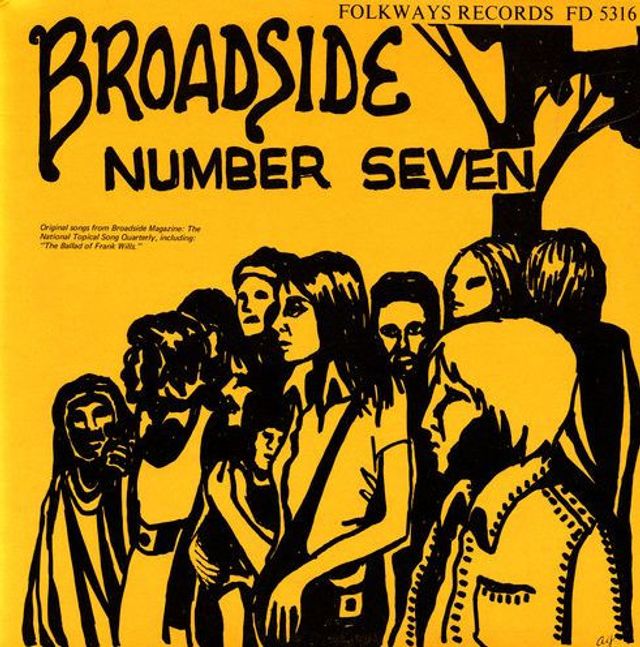Home
Broadside Ballads, Vol. 7



Broadside Ballads, Vol. 7
Current price: $19.99
Loading Inventory...
Size: OS
"All new songs, all new people," proclaims the booklet accompanying this seventh volume in
' varied series of albums drawn from recordings associated with Broadside magazine, which is devoted to topical songwriting. Many people may associate Broadside with its support of singer/songwriters of the early '60s like
and
, but the publication has gone right on with its mission of addressing issues of the day from a left-wing perspective. (An unsigned note in the booklet refers to the need for "a socialist revolution in the United States.") The all-new people singing the all-new songs are
,
, and
, and the contemporary issues include the American Indian Movement's uprising at Wounded Knee, the ever-spreading scandals of the Nixon Administration, and the ongoing war in Vietnam.
is allowed five of the LP's 11 tracks, and he proves a philosophical songwriter, leading off the disc with a statement of purpose in
There and on the next song,
speaks in general terms, but also in strong rhetoric, declaring that he will not compromise.
lightens the mood with his one song,
which recounts the loose-canon exploits of the wife of the former Attorney General. Another songwriter taking a humorous look at the overall subject known as Watergate is
, whose
tells the story of the security guard who caught the Watergate burglars.
is far more serious on
which is the song about Wounded Knee. It might seem at this point that there is nothing new to be said about the Vietnam War, but
comes up with a different angle in
a song that, like
's
(published in the first issue of Broadside) asks a series of philosophical questions, but unlike the
song, provides an answer with its final couplet. It's not clear that any of these songs will live much beyond the newspaper accounts of the stories they document, but they show that topical songwriting didn't stop ten years ago, by any means. ~ William Ruhlmann


















